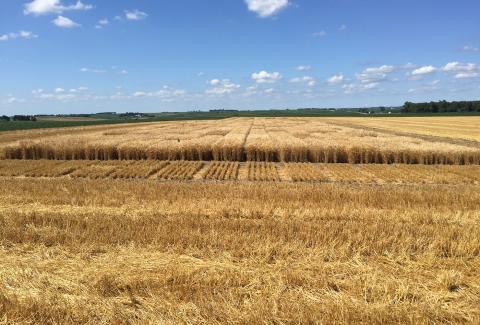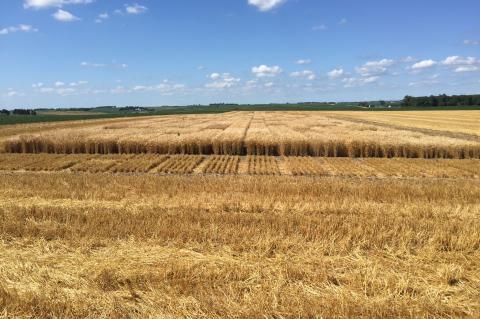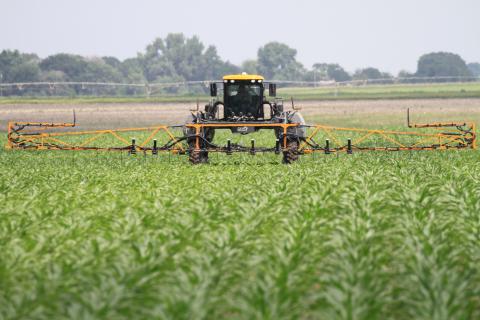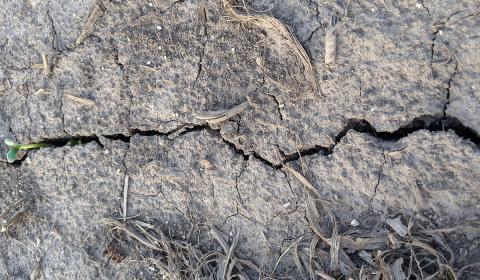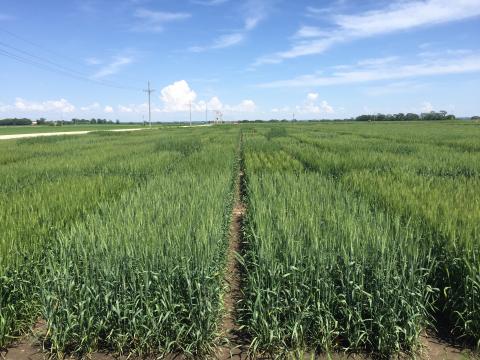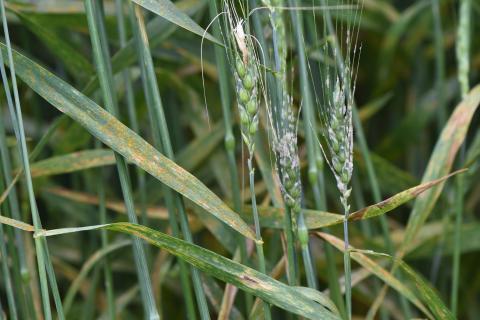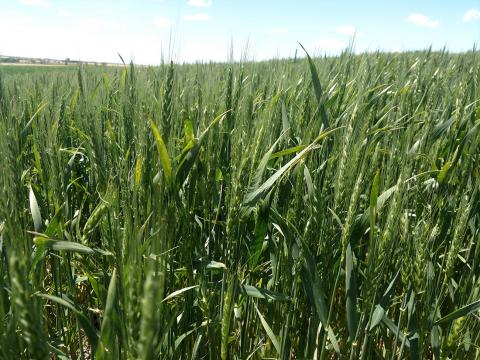August 30 Field Day to Showcase Local Value of Soil Health
August 16, 2019
Positioning your farm to become more resilient to extreme weather includes focusing on long-term soil health. An August 30 Soil Health Demo Field Day will feature soil health and conservation practices to help improve soil health over time.
A Review of the 2018-19 Eastern Nebraska Winter Wheat Growing Season
August 15, 2019
Nebraska Extension educators review the wheat production season in eastern Nebraska and factors affecting it, from a rough start with cool, wet conditions to a good finish.
Extension Crop and Pest Reports (July 15-19)
July 17, 2019
From wheat harvest in the Panhandle to parched corn in east-central Nebraska, Extension Educators report on crop conditions in their area.
Does Your Corn Need Added Nitrogen? On-farm Research can Help Evaluate That
June 21, 2019
Knowing how much nitrogen (N) to apply to corn is challenging, especially in wet years, but on-farm research can help evaluate your N program to get the answers This article looks at several times of N trials conducted by other growers and invites you to learn how to set up your own trial yet this season.
Considerations after Crusted Soybean
June 14, 2019
Soil crusting is challenging soybean emergence, but is it enough to warrant replanting? Here are early steps to remediate crusting problems and factors to consider when considering replanting.
Eastern Nebraska Wheat, Pulse and Double Crop Field Day June 18
June 7, 2019
Variety trials and field research will be in the spotlight June 18 at the Eastern Nebraska Wheat, Pulse, and Double Crop Field Day at the Eastern Nebraska Research and Education Center near Mead.
Wheat Update: Diseases Are Increasing
June 7, 2019
Surveys of wheat fields in southeast Nebraska during the week of June 3 revealed a significant increase in diseases from the previous week.
Wheat Update
May 24, 2019
Wheat growth is running 7-10 days behind normal across much of the state, which may push the grain-fill period into some of the hottest days of the wheat season. Delayed development likely helped most wheat escape injury from snow and low temperatures early this week.
 Area: Saline, Jefferson and Gage Counties
Area: Saline, Jefferson and Gage Counties
